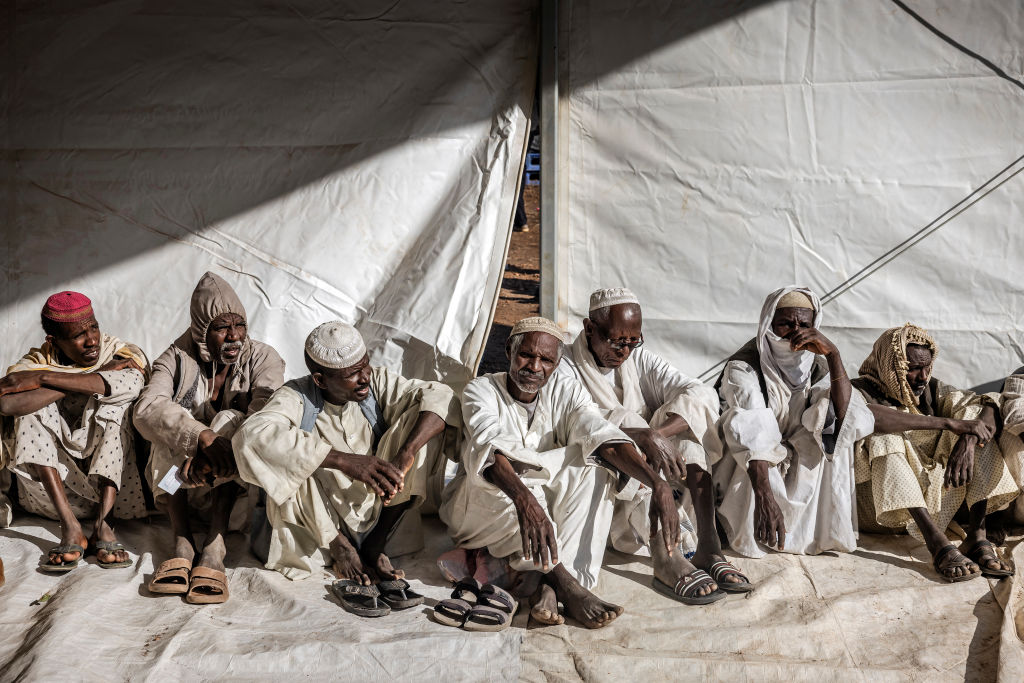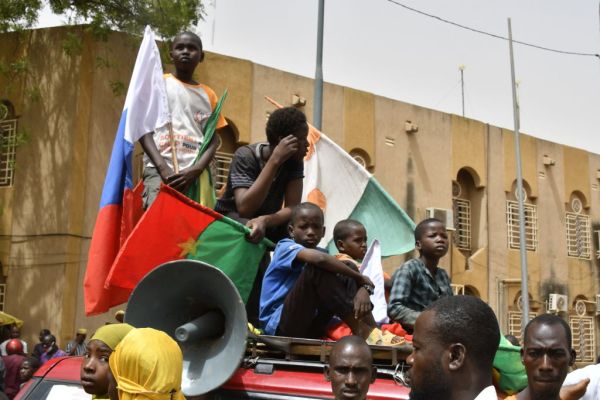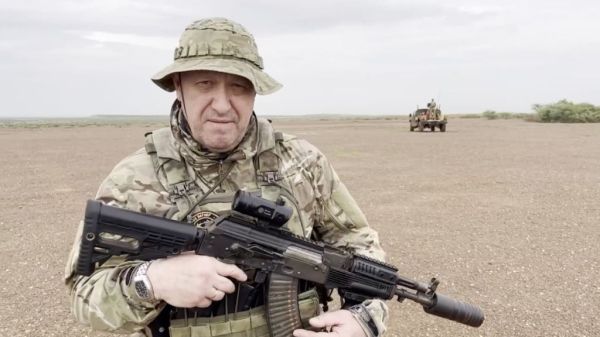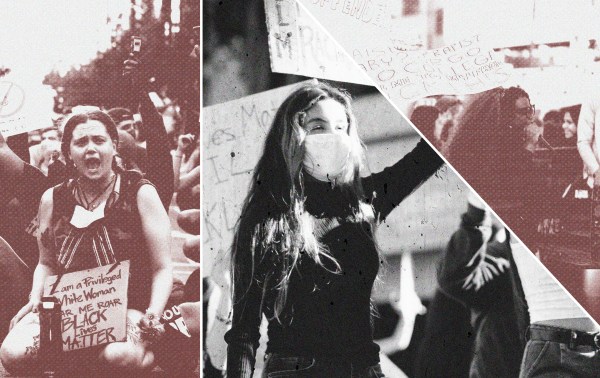Happy Wednesday! We’ll be honest: We did not expect to spend as much time as we did yesterday digging into the bylaws of Major League Eating’s (MLE) annual Nathan’s Famous Hot Dog Eating Contest.
Joey Chestnut, the contest’s 16-time champ, will reportedly not compete this Fourth of July after he inked a deal with rival, plant-based meat brand, Impossible Foods, in violation of “basic hot dog exclusivity provisions” of his relationship with Nathan’s. “It seems Joey and his managers have prioritized a new partnership with a different hot dog brand over our long-time relationship,” MLE said in a statement.
Impossible Foods, meanwhile, issued a statement of its own: “It’s OK to experiment with a new dog. Meat eaters shouldn’t have to be exclusive to just one wiener.”
Quick Hits: Today’s Top Stories
- A jury on Tuesday found Hunter Biden guilty on all three federal felony gun charges related to his purchase and possession of a gun while addicted to cocaine. The jury deliberated for just under three hours before returning a verdict, which also found the younger Biden guilty of lying on a federal form about his drug usage. President Joe Biden said Tuesday following the verdict that he would accept the outcome of the trial, and has previously said he would not pardon his son in the case of a guilty verdict. Hunter Biden has vowed to appeal the conviction, and the judge overseeing the case did not schedule a date for the sentencing.
- South Korea’s Joint Chiefs of Staff said Tuesday that South Korean soldiers had fired warning shots this week at North Korean troops who briefly crossed into the Demilitarized Zone between the two countries. The northern soldiers immediately returned to their side of the border, and a spokesman for the Joint Chiefs suggested the incursion seemed unintentional. The last few weeks have seen North Korea float manure- and trash-filled balloons over the border and South Korea retaliate by playing South Korean pop music and propaganda materials over a loudspeaker into the North.
- Four instructors from Cornell College in Iowa were stabbed in a public park in Jilin City in northeast China on Monday, local authorities and representatives of the college said. The four, who are expected to recover from their injuries, were attacked by a suspect in his 50s. The man—who has been arrested—also stabbed a bystander who tried to intervene. The motive of the attack was unclear, but the Chinese Foreign Ministry described it as an “isolated incident.” No Cornell students were taking part in the program with a local Chinese university at the time of the stabbing.
- Malawi’s president, Lazarus Chakwera, announced on Tuesday that the country’s Vice President Saulos Chilima and nine others died in a plane crash in an uninhabited forested region of the east African nation on Monday. An initial investigation indicated that the plane crashed as a result of bad weather. Chilima was expected to run for president in 2025.
- The U.S. Department of Homeland Security on Tuesday banned imports from three Chinese companies over violations of the Uyghur Forced Labor Prevention Act, which aims to keep goods out of U.S. supply chains that were produced with forced labor in China’s Xinjiang province. The three companies—a seafood processor, aluminum manufacturer, and shoe producer—join more than 60 companies on the forced labor blacklist.
- Manhattan District Attorney Alvin Bragg—who successfully prosecuted former President Donald Trump for falsifying business records to cover up an affair with a porn star—said Tuesday he intends to comply with a request from the Republican-controlled House Judiciary Committee to testify before Congress on July 12, just one day after Trump’s sentencing hearing. Rep. Jim Jordan of Ohio, chairman of the House Judiciary Committee, called on Bragg and prosecutor Michael Colangelo—who worked as a lawyer for the Justice Department before joining the D.A.’s office—to testify following Trump’s conviction late last month, saying the proceedings were a “kangaroo court.”
- GOP Rep. Nancy Mace of South Carolina won her Republican primary on Tuesday, fending off challenger Catherine Templeton, backed by former House Speaker Kevin McCarthy—whom Mace helped to oust from the leadership position in October. Meanwhile, in Nevada, a Trump-backed Republican Senate candidate, Army veteran Sam Brown, easily clinched the GOP nomination to set up a tight general election contest with Democratic Sen. Jacky Rosen in November.
‘We’re Talking About Almost a Failed Region’

Covering slow-rolling conflicts can be challenging, as crises slide from bad, to terrible, to unthinkable. Foreign correspondents file invaluable dispatches from war-torn regions that have become black boxes to the outside world, shedding light on atrocities and humanitarian disasters, but international attention and action can prove fleeting even as conditions worsen on the ground. Such has been the case with Sudan.
Fourteen months into the country’s civil war, the Rapid Support Forces (RSF)—a paramilitary group allied with mostly Arab militias—and the Sudanese Armed Forces (SAF) are wreaking havoc on the country in a seemingly intractable conflict.
But with international focus trained on the wars in Gaza and Ukraine, comparatively little attention has been paid to what has become the largest displacement and food crisis in the world. Neglect of the conflict has driven international media to continually label Sudan the “forgotten” crisis.
There’s no shortage of suffering. There have been credible reports of war crimes from both sides, rape as a weapon of war, and ethnic cleansing. Some of the same people who escaped genocide in Darfur, a region of Western Sudan, in 2003 are once again fleeing for their lives. Now, a huge swath of the country faces famine and starvation—some families have reportedly resorted to eating balls of wet dirt to stave off hunger.
More than 10 million people are internally displaced inside Sudan and more than 2 million refugees have fled the country to neighboring Chad, as well as to Egypt and South Sudan, according to the United Nations International Organization for Migration. The death toll is difficult to estimate: The lower bound, likely a dramatic undercount, is some 15,000 deaths. Tom Perriello, the U.S. Special Envoy for Sudan appointed in February, recently estimated that as many as 150,000 people have been killed.
As the country’s humanitarian nightmare continues, U.S. officials and international agencies warn that Sudan is now nearing a total catastrophe that could result in a decades-long security fallout with far-reaching consequences. “The worst-case scenario in Sudan is a 20-, 25-year version of Somalia on steroids,” Perriello told Foreign Policy last week.
How did Sudan fall into such dire straits? The civil war began in April 2023 when fighting for control of the East African country broke out in the wake of a popular uprising against long-time dictator Omar al-Bashir. The SAF and the RSF are led by Gen. Abdel Fattah al-Burhan and Mohamed Hamdan “Hemedti” Dagalo, respectively. As we explained last year:
Burhan and Hemedti joined forces to help oust Bashir following widespread protests in 2019 and participated in discussions with a civilian transitional government—before executing a coup in 2021 and cracking down on protests. Both assented to a United Nations-backed framework for restoring civilian rule in December 2022, but they clashed over combining forces.
When the conflict kicked off, the two generals’ forces clashed in Khartoum, the capital in central Sudan, turning the city into a warzone. The U.S.—which evacuated embassy staff early in the conflict—has pushed for ceasefires and negotiations, but both generals have refused to commit to a peace process and have repeatedly broken temporary ceasefires.
The RSF is currently strongest in the southwest, controlling almost all of Darfur, and the SAF holds most of northern Sudan, including Port Sudan along the coast of the Red Sea. Fighting continues in Khartoum and the neighboring city of Omdurman, as well as in al-Fashir—a city in northwestern Darfur to which hundreds of thousands of Sudanese civilians have fled. In recent weeks, RSF forces have encircled al-Fashir, the last SAF stronghold in all of Darfur. If it falls, the RSF would have full control of Darfur and most of western Sudan.
It seems almost inevitable the RSF will continue its pattern of atrocities in al-Fashir—but at a much larger scale. Last week, the RSF slaughtered some 150 civilians and injured 200—the exact numbers have yet to be confirmed—in a village approximately 100 miles south of Khartoum. According to unconfirmed eyewitness testimony and video footage, RSF forces opened fire on the village with heavy machine guns and anti-aircraft guns, despite there being no SAF forces present. The result? Indiscriminate killing of civilians, including women and children. Last June, RSF forces went house by house in Geneina, the capital of West Darfur, killing men and boys from the Masalit tribe in what Reuters journalists described as “a rolling ethnic killing campaign that lasted for weeks.”
The RSF has al-Fashir surrounded, but that’s not the only threat to civilians. “All these people are already facing famine conditions, so even if they were to try to move, they would probably perish just of exposure,” said Cameron Hudson, a former chief of staff to successive special envoys to Sudan and a current senior associate of the Africa Program at the Center for Strategic and International Studies.
The humanitarian disaster seems to be the point: Large areas of Sudan have become inaccessible to international aid groups in what appears to be part of an intentional war strategy by both RSF and SAF to deprive each other of supplies. “It has devolved into a conflict that is as much about the civilian harm as it is about actual conflict between two belligerents,” Hudson told TMD. “In many respects, this is a war on civilians.”
Cindy McCain, the executive director of the U.N. World Food Programme, said Sunday that “we can barely get food in—we certainly aren’t getting it in at scale.” Likewise, Isobel Coleman—the deputy administrator of the U.S. Agency for International Development—argued that Burhan and Hemedti are directly to blame for blocking aid. “This looming threat of famine hangs on them,” she said in late April. “People are literally dying by the day because of lack of access to food and other essentials.”
Some of the country is probably already experiencing famine conditions. While data is difficult to come by, the Famine Early Warning Systems Network (FEWS NET) put large parts of the country at risk of Phase 5 famine—“starvation, death, destitution, and extremely critical acute malnutrition levels are evident”—in March projections for the summer months.
The situation is likely to deteriorate as the country enters the rainy season, making transporting aid to many areas difficult, and the lean season—a window between harvests where food runs low, even during peacetime. Plus, the RSF has plundered farms, jeopardizing the food supply for future seasons. “We have a situation where [it is] highly likely we will have up to 5 million Sudanese people at risk of famine when the next report comes in,” Martin Griffiths, the U.N. undersecretary for humanitarian affairs and emergency relief coordinator, said last week. “I don’t think we’ve ever had that kind of number.”
Despite the growing need, international aid efforts have been underfunded since the conflict began. The U.N.—having received only 16 percent of the $2.7 billion it said it needed from donors as of March 31—has had to cut back humanitarian aid to support refugees and, at multiple points in the last year, almost halted operations altogether.
The U.S. has been the largest funder of aid to Sudan and pushed other countries to donate more. In April, Perriello—the U.S. Special Envoy—described the international response to the crisis as “pitiful.” However, the U.S. has also faced criticism for not exerting more pressure to distribute aid more effectively. “Washington could be doing a lot more to put its shoulder into breaking down the obstacles to delivering food aid,” Hudson told TMD. “Sudan has been a country where we have done airdrops, where we have done cross-border humanitarian delivery without the consent of the government. … We have this very long track record of these kinds of interventions in Sudan, and we’re not doing any of them right now.”
Perriello has emphasized the importance of renewing peace talks in Jeddah, Saudi Arabia, between the RSF and SAF, but neither party seems interested. “We will not go to Jeddah, and whoever wants us to should kill us in our country and take our bodies there,” a spokesman for the SAF said in late May. This reluctance to negotiate has likely been driven by both sides of the conflict receiving weapons and support from countries looking to gain a foothold in Sudan. The United Arab Emirates (UAE) has provided significant backing to the RSF, while Egypt, Saudi Arabia, and Iran have offered more limited support to the SAF.
Democratic and Republican lawmakers have called on the Biden administration to take more action. Democratic Sen. Chris Coons—a close ally of the president—said last month that the U.S. needs to do more to support a transition to a civilian-led government. The Republican chair of the House Foreign Affairs Committee, Rep. Michael McCaul, pointed to Sudan as a “perfect example” of the White House neglecting conflicts in Africa.
But the White House may be hesitant to confront Egypt or Saudi Arabia and risk their cooperation on other foreign policy issues, particularly Israel’s war against Hamas in Gaza. Plus, the U.S. is reportedly close to finalizing a major security pact with Saudi Arabia tied to normalizing relations with Israel. “When you rack and stack your foreign policy priorities, sadly, Sudan falls further down on the list,” Colin Clarke—the director of research at the Soufan Group focused on global security—told TMD.
While resolving the conflict in Gaza may be a more pressing priority for Biden, security analysts—and even currently serving U.S. officials—see the crisis in Sudan as potentially detrimental to U.S. interests in the long run. “The strategic costs are massive,” Hudson argued, pointing to Libya as an example of how a failed state can produce cascading consequences for a region. “Whether it’s terrorism, whether it’s illegal migration, whether it’s gun trafficking, drug trafficking, piracy, you name it, all flowing out of Libya [in the last decade],” Hudson said. “And of course, now, Islamic extremism.”
The Office of the Director of National Intelligence’s annual threat assessment from March found that Sudan could become an “ideal environment for terrorism.” And Islamic terror groups and militias have contributed to the downfall of governments in Mali, Burkina Faso, and Niger. “Those are all a direct reflection and response to the state failure in Libya,” Hudson said. “If a country of 5 million can have that kind of ripple effect across Central Africa and Central Europe, what is a country of 50 million people that dissolves? What is the effect that that is going to have on all of those kinds of transnational threats?”
And there doesn’t seem to be an off-ramp to the war in the near term. “We’re talking not really even about a failed state,” Clarke told TMD. “We’re talking about almost a failed region.”
Worth Your Time
- Government officials are starting to sound like they did in the weeks, months, and years before the 9/11 attacks, Graham Allison and Michael J. Morell warned in Foreign Affairs. “The wax and wane of terrorism warnings over the years has generally corresponded with the level of actual risk,” they wrote. “Given the stakes, complacency is a greater risk than alarmism. Combined, the stated intentions of terrorist groups, the growing capabilities they have demonstrated in recent successful and failed attacks around the world, and the fact that several serious plots in the United States have been foiled point to an uncomfortable but unavoidable conclusion. Put simply, the United States faces a serious threat of a terrorist attack in the months ahead. … For the past two decades, under both Republican and Democratic administrations, the efforts of thousands of Americans in the military and intelligence communities have spared the country a second 9/11—or worse. This is an extraordinary achievement, but the work is not done. A terrorist attack is a preventable catastrophe. As the threat increases, policymakers must rise to the challenge to protect the U.S. homeland.”
- Are Americans lonely because we don’t have dining rooms anymore? That could be one piece of the puzzle, M. Nolan Gray wrote in The Atlantic. “In many new apartments, even a space to put a table and chairs is absent,” he wrote. “Eating is relegated to couches and bedrooms, and hosting a meal has become virtually impossible. This isn’t simply a response to consumer preferences. The housing crisis—and the arbitrary regulations that fuel it—is killing off places to eat whether we like it or not, designing loneliness into American floor plans. … As households and dining spaces have contracted, the number of people eating alone has grown. According to a 2015 report by the Food Marketing Institute, nearly half the time we spend eating is spent in isolation, a central factor in America’s loneliness epidemic and a correlate to a range of physical- and mental-health problems. Do we want to live this way—or do we have to, thanks to America’s housing supply? ‘It’s a chicken-and-an-egg problem,’ Bobby Fijan, a real-estate developer and floor-plan expert, said. How many more dinners would be shared if we had the space to host guests?”
Presented Without Comment
New York Times: Chiquita [Banana Company] Held Liable for Deaths During Colombian Civil War
Also Presented Without Comment
CNN: Biden to Speak on Gun Safety Shortly After His Son is Found Guilty on Firearms Charges
Also Also Presented Without Comment
The Hill: Wild Hogs Threatening Florida, Spreading Across U.S.
In the Zeitgeist
We highly recommend having coworkers with good taste in music. Alex turned us on to this new album by Gill Landry, Cinnamon Canyon Blues.
Toeing the Company Line
- In the newsletters: Sarah and Mike covered Hunter Biden’s conviction on felony gun charges and Nick wondered whether right-wingers’ persistent attacks on Joe Biden’s age are lowering expectations too far ahead of the debate—or just plain effective.
- On the podcasts: Jonah is joined on The Remnant by Yuval Levin, his boss at the American Enterprise Institute, to discuss Yuval’s new book, American Covenant: How the Constitution Unified Our Nation—And Could Again.
- On the site: Jonah criticizes Washington’s immigration indecision and Kevin argues that fracking helped the U.S. economy weather the post-COVID era.
Let Us Know
What else, if anything, should the U.S. do about the crisis in Sudan?









Please note that we at The Dispatch hold ourselves, our work, and our commenters to a higher standard than other places on the internet. We welcome comments that foster genuine debate or discussion—including comments critical of us or our work—but responses that include ad hominem attacks on fellow Dispatch members or are intended to stoke fear and anger may be moderated.
With your membership, you only have the ability to comment on The Morning Dispatch articles. Consider upgrading to join the conversation everywhere.